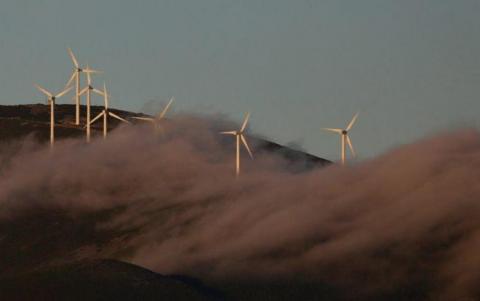Advanced economy emissions fall, offset growth elsewhere

Global energy-related emissions of heat-trapping carbon dioxide remained steady last year, with declines in the advanced economies balancing out a rise in the rest of the world, latest data has shown.
The International Energy Agency said emissions of the main man-made greenhouse gas stayed at 33 gigatons in 2019, even as the world economy grew by 2.9 percent.
"This was primarily due to declining emissions from electricity generation in advanced economies, thanks to the expanding role of renewable sources, mainly wind and solar, fuel switching from coal to natural gas, and higher nuclear power generation," the Paris-based agency said.
"Other factors included milder weather in several countries, and slower economic growth in some emerging markets," it added.
The country with the biggest drop in energy-related CO2 emissions was the United States, which recorded a fall of 2.9 percent to 4.8 gigatons on the back of coal-fired power plant closures and lower demand for electricity.
The European Union saw its emissions fall by 5 percent to 2.9 gigatons, while Japan's dropped 4.3 percent to just over 1 gigaton in 2019.
Overall, developed nations saw their emissions fall 370 million tons with a 3.2 percent decline annually.
By contrast, emissions in the rest of the world rose by almost 400 million tons last year, led by higher coal use in Asia despite slowing growth in major emitters China and India.
"We now need to work hard to make sure that 2019 is remembered as a definitive peak in global emissions, not just another pause in growth," said IEA Executive Director Fatih Birol.
"We have the energy technologies to do this, and we have to make use of them all," the Turkish economist and energy expert added.
- Log in to post comments










